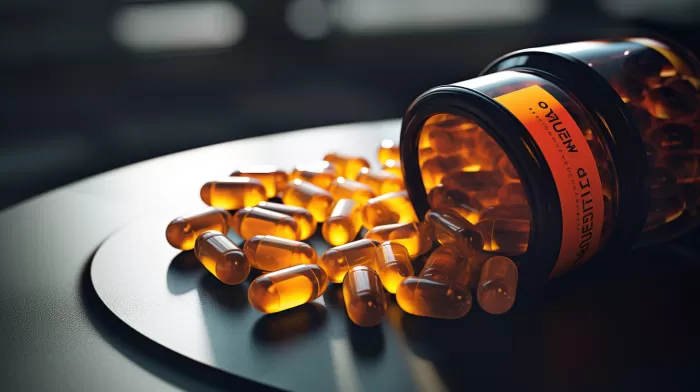In recent years, vitamin D has been found to have numerous potential benefits for the body. One of the latest discoveries is its possible role in preventing injuries in athletes, particularly those in high-risk sports like football. Ensuring adequate vitamin D levels could be an easy, natural way to reduce injuries and improve overall health.
The Importance of Vitamin D for Athletes
Vitamin D, also known as the “sunshine vitamin,” is crucial for maintaining healthy bones, as it helps the body absorb calcium from the diet. Low levels of this essential vitamin can lead to various health issues such as rickets in children and osteoporosis in adults.
But vitamin D is not just important for bone health. It also plays a role in maintaining overall well-being by boosting the immune system and helping with muscle function. With this in mind, it’s not surprising that vitamin D levels could have an impact on injury rates in athletes.
In a study that was presented at the American Orthopaedic Society for Sports Medicine’s (AOSSM) Annual Meeting in San Diego, researchers found that insufficient levels of vitamin D could put NFL players at a higher risk of injury. Scientists measured vitamin D levels in 89 football players as part of their regular pre-season health assessment and found that many of the players who had suffered injuries had low levels of the vitamin.
“Eighty percent of the football team we studied had vitamin D insufficiency. African-American players and players who suffered muscle injuries had significantly lower levels,” said Michael Shindle, M.D., the study’s lead researcher.
Although more research is needed, these findings suggest that increasing vitamin D intake could be an effective way to reduce the chance of injury for athletes, especially those involved in high-impact sports like football. But how can athletes ensure they get enough vitamin D?
Sources of Vitamin D
There are three main ways to obtain vitamin D – through sunlight exposure, diet, and supplements.
- Sunlight Exposure: When the skin is exposed to UVB rays from the sun, it naturally produces vitamin D. However, factors such as the time of day, the season, and geographical location can affect the body’s ability to produce vitamin D. For athletes who spend significant time outdoors practicing and competing, sunlight exposure can be a natural and convenient way to boost their vitamin D levels. Just remember to protect your skin with sunscreen, as prolonged sun exposure can lead to skin damage and increase the risk of skin cancer.
-
Diet: There are a few foods that are naturally rich in vitamin D. Fatty fish like salmon, mackerel, and sardines are among the best dietary sources, while eggs, milk, and fortified cereals also contain moderate amounts of the vitamin. Incorporating these foods into an athlete’s diet can help maintain adequate vitamin D levels. Keep in mind, it can be challenging to get enough vitamin D from diet alone, so the other methods should be considered for optimal levels.
-
Supplements: Vitamin D supplements are an easy and convenient way to ensure that athletes get enough of this essential nutrient. Speak with your doctor or a registered dietitian to determine the right dosage, as too much vitamin D can lead to health problems such as kidney stones and calcification in the arteries.
Monitoring Vitamin D Levels
Athletes should be aware of the symptoms of vitamin D deficiency, which can include bone and muscle pain, fatigue, and frequent illness. Keep an eye out for these signs, and talk to your doctor if you’re concerned about your vitamin D levels.
To measure your vitamin D levels, a blood test can be done. The optimal level can vary depending on individual factors, but most health professionals recommend aiming for a blood concentration of 20-50 ng/mL. Athletes should work with their healthcare professional to establish the desired range for their unique needs, taking into consideration factors like age, gender, and ethnicity.
Conclusion
Adequate vitamin D levels are essential for optimal health and well-being. For athletes participating in high-impact sports like football, maintaining sufficient vitamin D levels could potentially help prevent injuries and improve overall performance. Making sure to get enough vitamin D through sunlight exposure, diet, and supplements, as well as regularly monitoring vitamin D levels, can help athletes stay healthy, strong, and injury-free.
For more in-depth information on vitamin D, check out resources from reputable health organizations like WebMD’s Vitamin D page or the National Institutes of Health (NIH) Office of Dietary Supplements.



